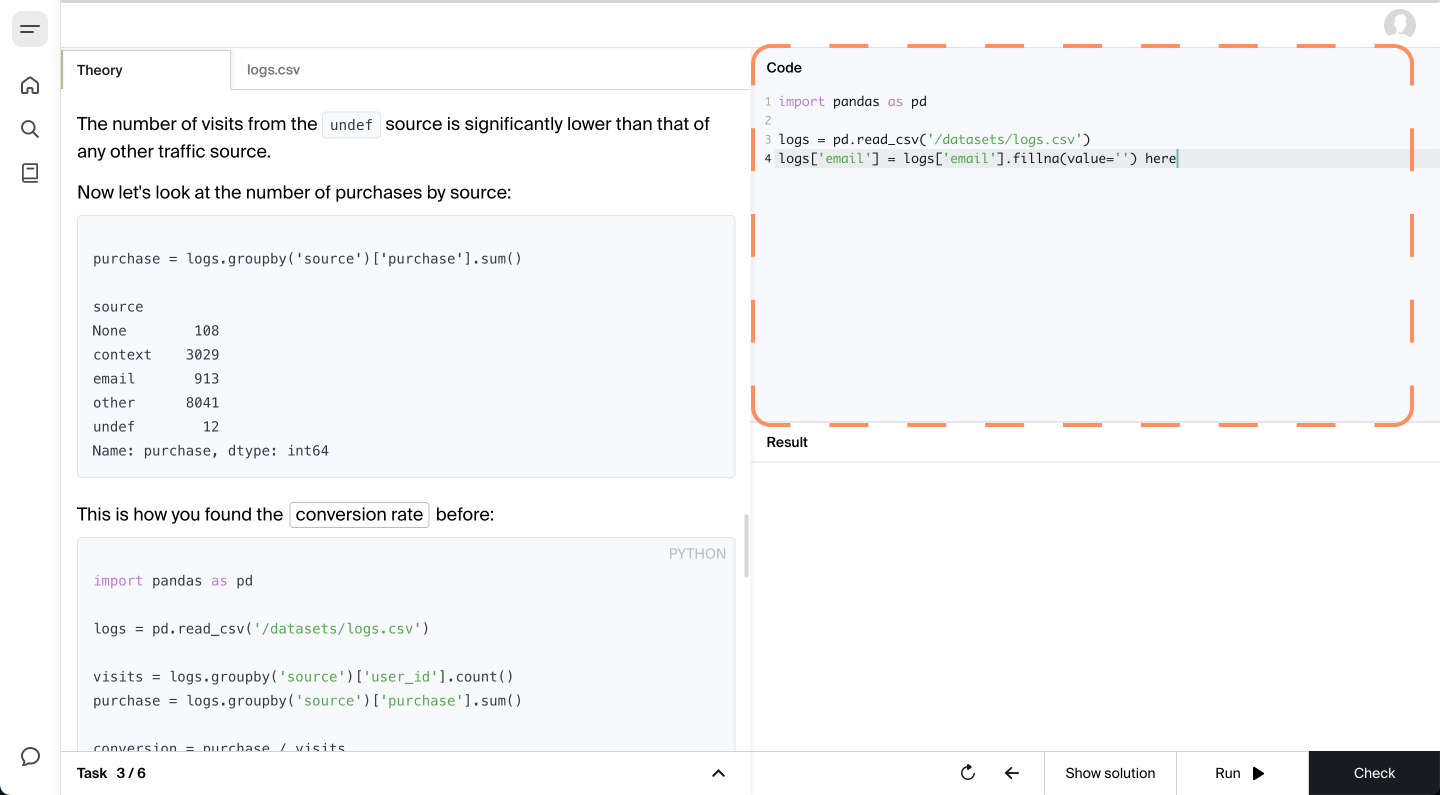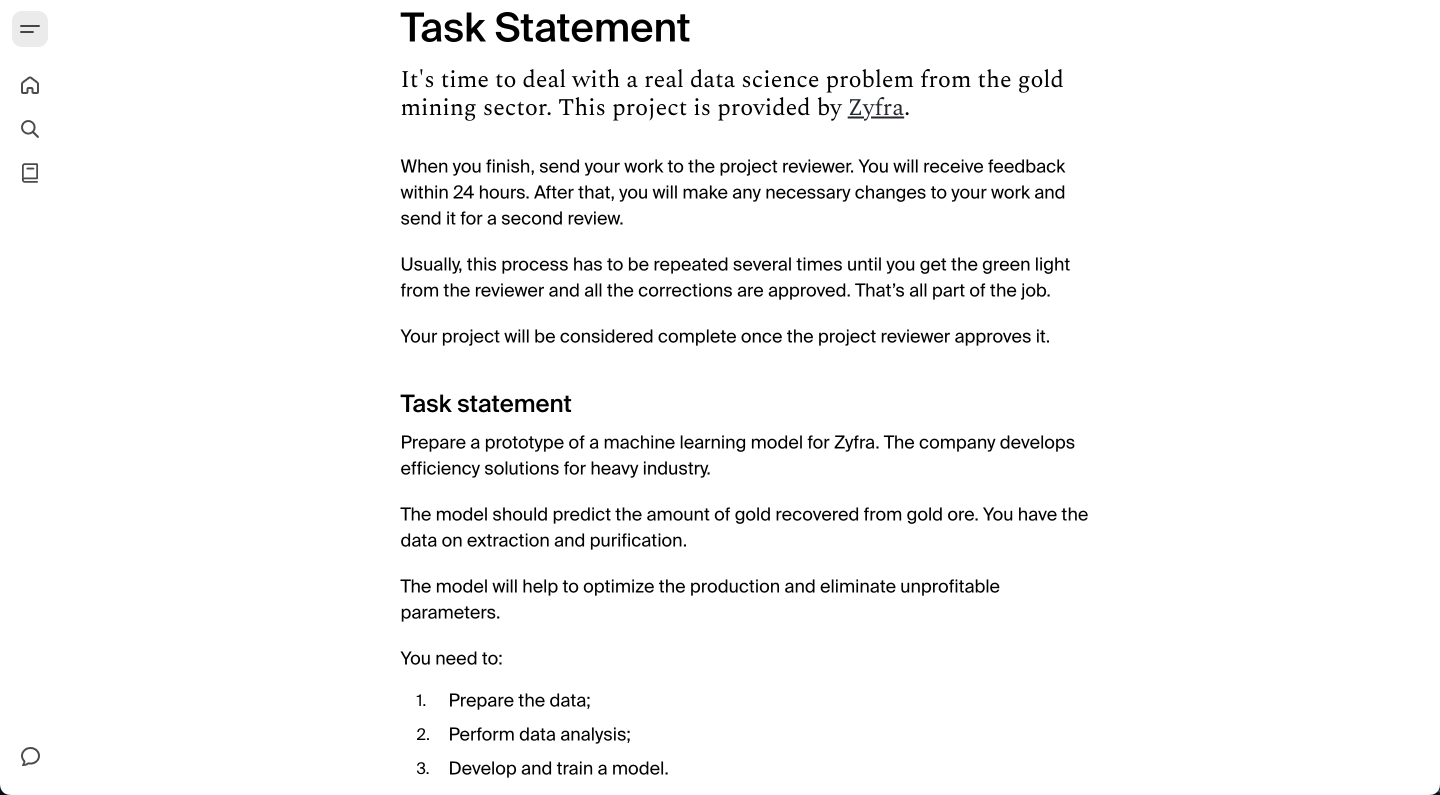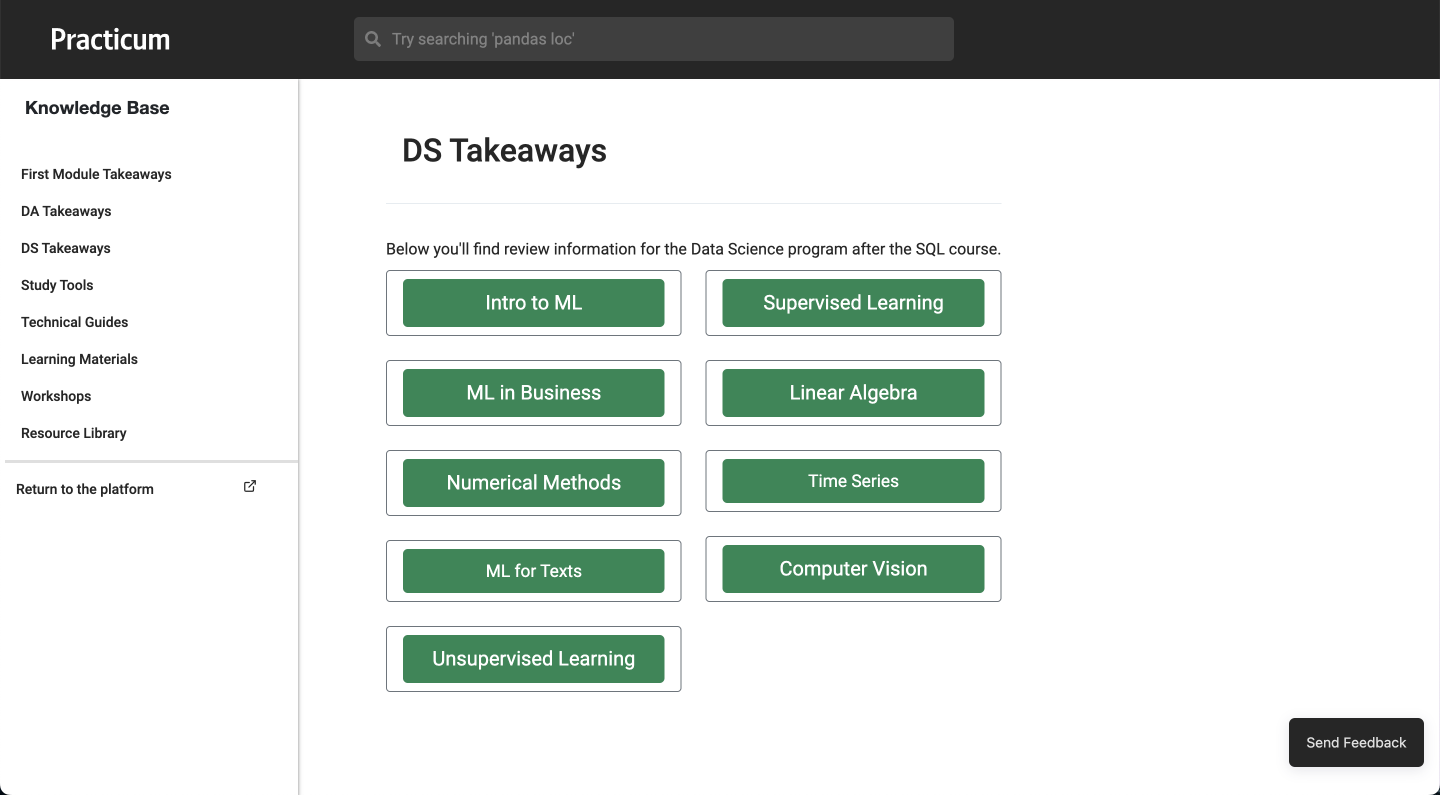TripleTen’s beginner-friendly online coding bootcamps were designed for every type of learner. And thanks to our comprehensive curriculum and interactive learning platform, we are happy to report not only high rates of completion but also grad employment.
Our learning platform presents materials in a structured and thorough way, allowing you to practice the basics while getting feedback from your tutor. Let’s walk through the platform to see how just how things are organized.
How is the platform organized?
The platform teaches students using a modules system. Every module is divided into chapters that combine theoretical and practical lessons. The classes are interactive, with tasks that require coding, and provide tips and reference materials to help students when they’re stuck. At the end of each chapter, there is a quiz to help students retain the learning material better.
Every learning sprint lasts two to three weeks. This timing and approach are similar to how most tech companies manage their work. Just like at work, there are deadlines to meet within those sprints. This encourages students to make a schedule and stick to it.

At the end of the course, there's a final project to work on. It combines all the skills and knowledge the students have obtained over the course, giving students valuable professional feedback on their overall learning experience.
All projects you accomplished during your studies will form part of your portfolio and resume. The TripleTen Career Team will teach you how to present yourself to recruiters and the ins and outs of job searching (Check out the “Career” section on the platform for that– it’s designed to provide students with personalized career coaching and support!)

What does the Platform look like?
Let’s take a closer look at the platform and walk through it from the view of a TripleTen student.
After logging into your account, you will see the starting page for your bootcamp progress.


The curriculum is divided into modules and chapters covering different concepts. Each chapter contains lessons combining both theory and practice.


Let's take a look at the “Data Preprocessing” module. You start with the introduction, where you can find a bit of theory in a video to help you get familiar with the concepts, what skills you will learn, and how they can be used for work.

In this example, you will learn everything you need to know to arrange “dirty data” into a dataset.

Next, you get to the chapter on working with missing values, with ten different lessons, including a chapter quiz to help you better learn and retain the learning material.
After you’ve learned the concepts, you proceed to hands-on practice. Let's take a look at the actual lesson on working with missing values.

Type your code here.

There are a number of tools that can help you if you get stuck. You can press the Hint button and, surprise-surprise, get a hint.

You can easily search for a keyword through the platform.

You can also get technical support in case you have questions about the platform.

After each task, you get a code review and feedback to help you better understand the concept and follow the best practices.

At the end of the module, a course project tests your newly acquired knowledge and skills. There are a total of twelve projects for data analysts and 15 for data scientists, all based on real-life data. Each can be added to your portfolio to help you stand out when applying for a job.
How do you work on real-life projects on the platform?
As mentioned, course projects are based on real-life data, which test students' newly acquired knowledge and skills. After completing the project, students receive a professional assessment, which is essential when they add their projects to their portfolios.
Let's take a closer look at one – a project where you prototype a machine-learning model for Zyfra, a company that improves the efficiency of industrial machinery and processes. The model should predict the amount of gold recovered from the gold ore, and help optimize production while eliminating unprofitable parameters. The provided data on extraction and purification is real, making the problem similar to something you would do on the job.

While working on this project, students can always use Prakam's Knowledge Base, a Wikipedia-type database, as a reference. Now, the real fun begins.

Once the student has completed the project, they submit the result for review through the interactive platform and get real professional feedback. An experienced data professional reads the student's code line by line to make sure the code is good to go. This is important because, by adding projects to your portfolio, you want recruiters to be impressed by your work (which will garner interest in your application!) Once the project is successfully completed, the next chapter is unlocked.

How is TripleTen’s platform different?
TripleTen's coding platform offers interactive learning, immediate feedback, and professional code review. Students can access interactive lessons and practice their coding skills through real-life projects. Also, with personalized career coaching and support, TripleTem helps students reach their goals and build successful careers in the tech industry.
With TripleTen’s learning platform, your bootcamp studies will become a 100% accessible and enjoyable experience that allows understanding of complex materials and steady progress. And the best part? You don’t need prior coding experience or knowledge of online tools to start!
.png)





.png)
.png)







